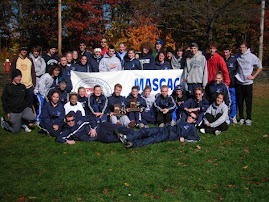 As we starting talking about chapter 10 in class today which is all about managing your weight and finding a healthy balance I decided to do my blog today on how the U.S. is trying to curve childhood obesity. More than one-third of children in the United States are overweight or obese. With so many children being overweight in this upcoming generation this is raising fears that they could constitute the first generation in recent history to have shorter life spans than their parents.
As we starting talking about chapter 10 in class today which is all about managing your weight and finding a healthy balance I decided to do my blog today on how the U.S. is trying to curve childhood obesity. More than one-third of children in the United States are overweight or obese. With so many children being overweight in this upcoming generation this is raising fears that they could constitute the first generation in recent history to have shorter life spans than their parents.Friday, February 20th officials of the Alliance for a Healthier Generation, a joint effort of the American Heart Association and the William J. Clinton Foundation unveiled their initiative to
 help battle childhood obesity. One of the biggest problems many families face in fighting obesity is getting insurance companies to pay for doctor visits and other care to help deal with the problem. The initiative is designed to give children better access to health care to fight obesity. Participating insurance companies would pay for at least four visits to a dietitian and four visits to a physician each year to provide guidance to children and their parents on how to eat better and take other steps to reduce and control their weight. Blue Cross Blue Shield of North Carolina and Blue Cross Blue Shield of Massachusetts have signed on to the initiative, along with two of the biggest insurers, Aetna and WellPoint.
help battle childhood obesity. One of the biggest problems many families face in fighting obesity is getting insurance companies to pay for doctor visits and other care to help deal with the problem. The initiative is designed to give children better access to health care to fight obesity. Participating insurance companies would pay for at least four visits to a dietitian and four visits to a physician each year to provide guidance to children and their parents on how to eat better and take other steps to reduce and control their weight. Blue Cross Blue Shield of North Carolina and Blue Cross Blue Shield of Massachusetts have signed on to the initiative, along with two of the biggest insurers, Aetna and WellPoint.Organizers expect that the initiative will provide the new benefits to about 1 million children in the first year and more than 6 million within three years.



 With the burst of warm weather this upcoming week it will hopefully encourage you to get outside and start running or exercising, but before you do think about the last time you got a new pair of running shoes.
With the burst of warm weather this upcoming week it will hopefully encourage you to get outside and start running or exercising, but before you do think about the last time you got a new pair of running shoes.








